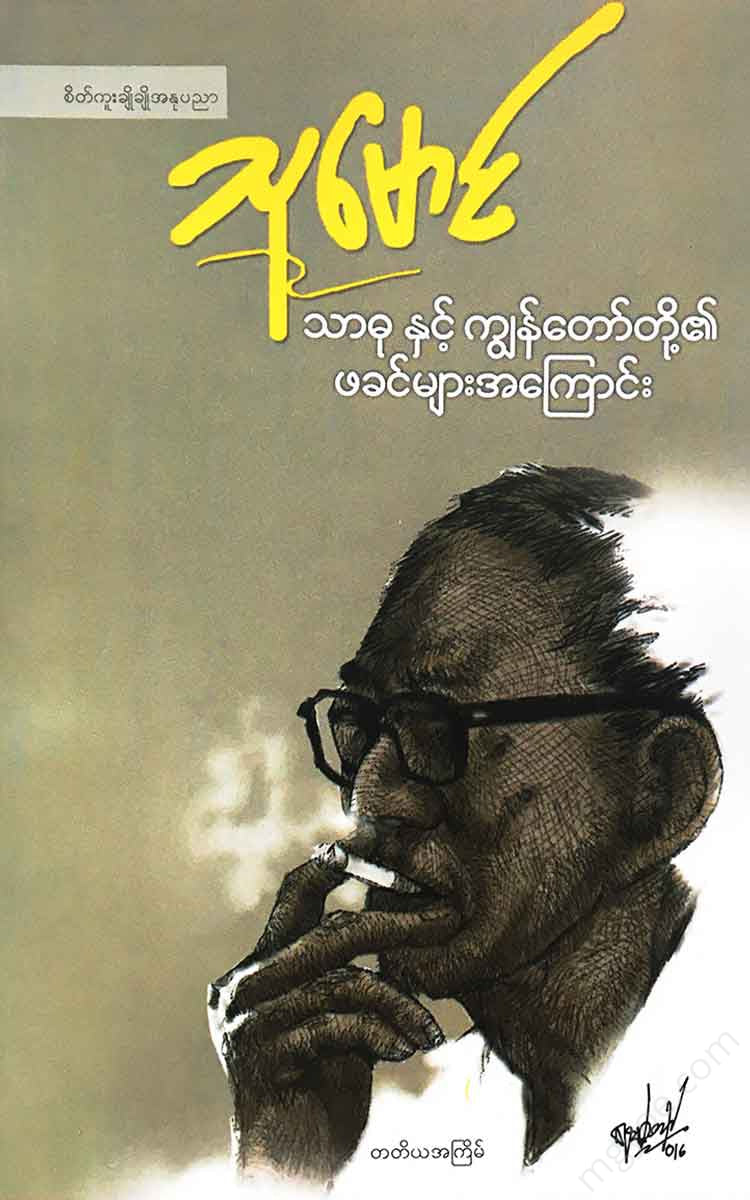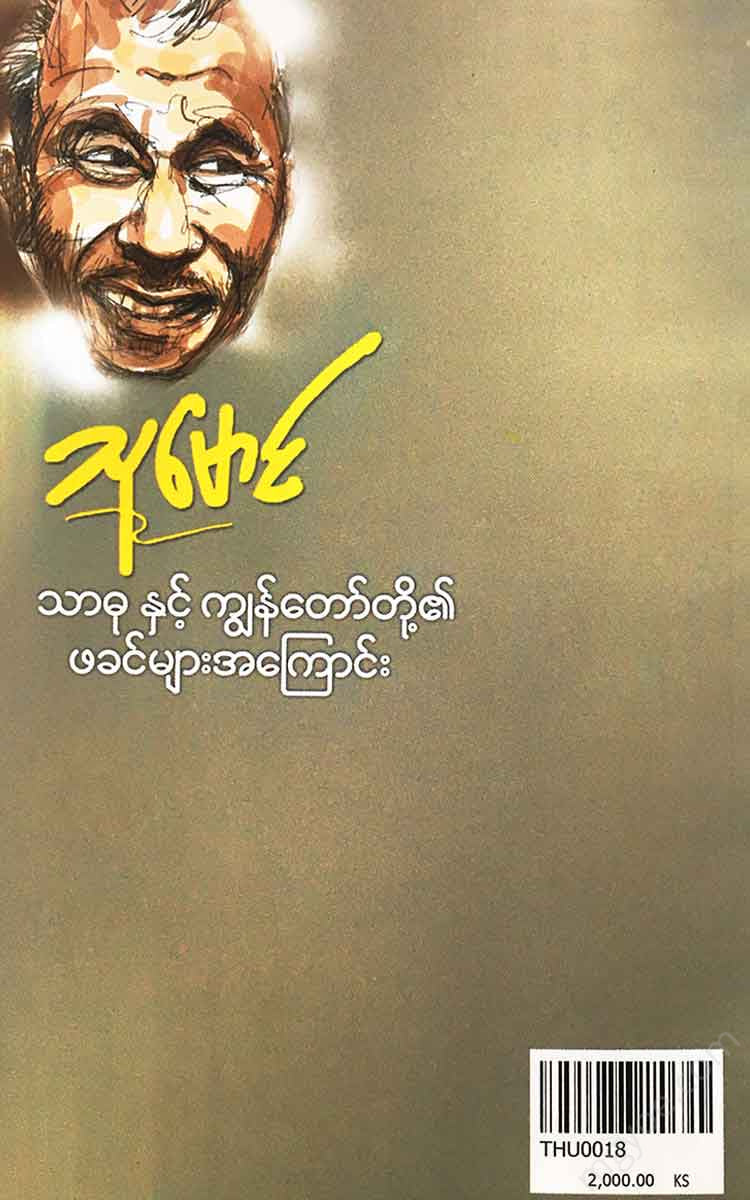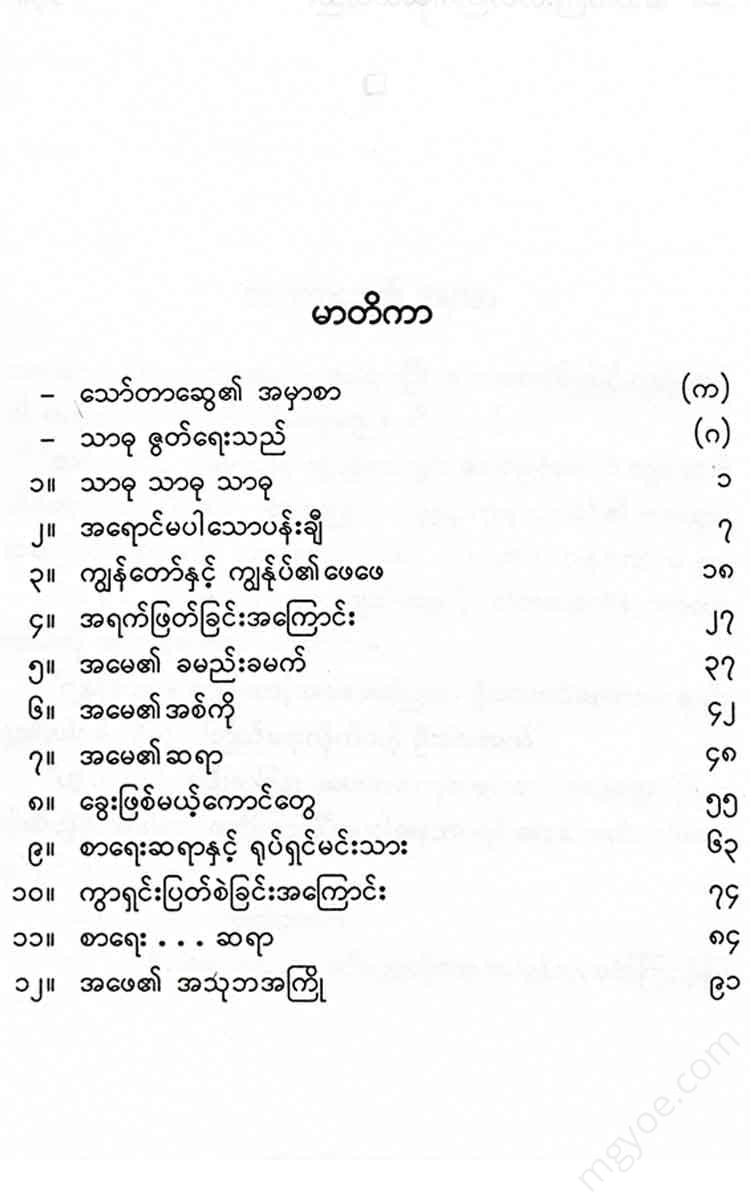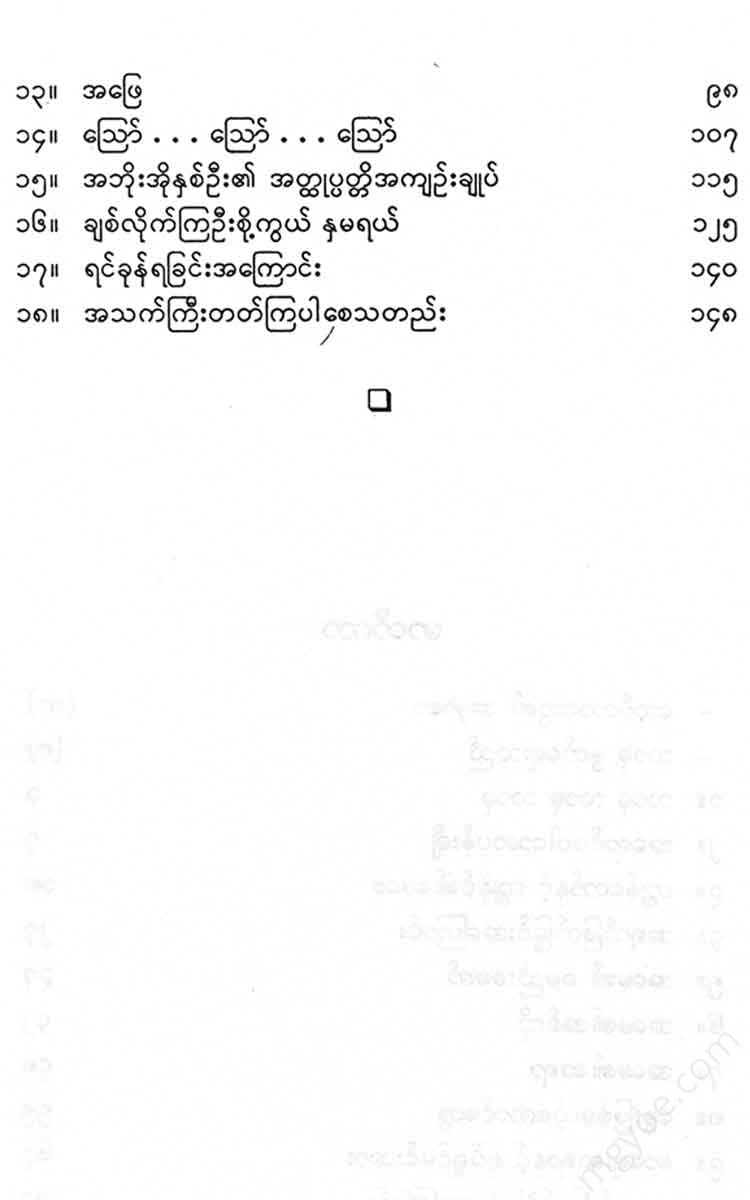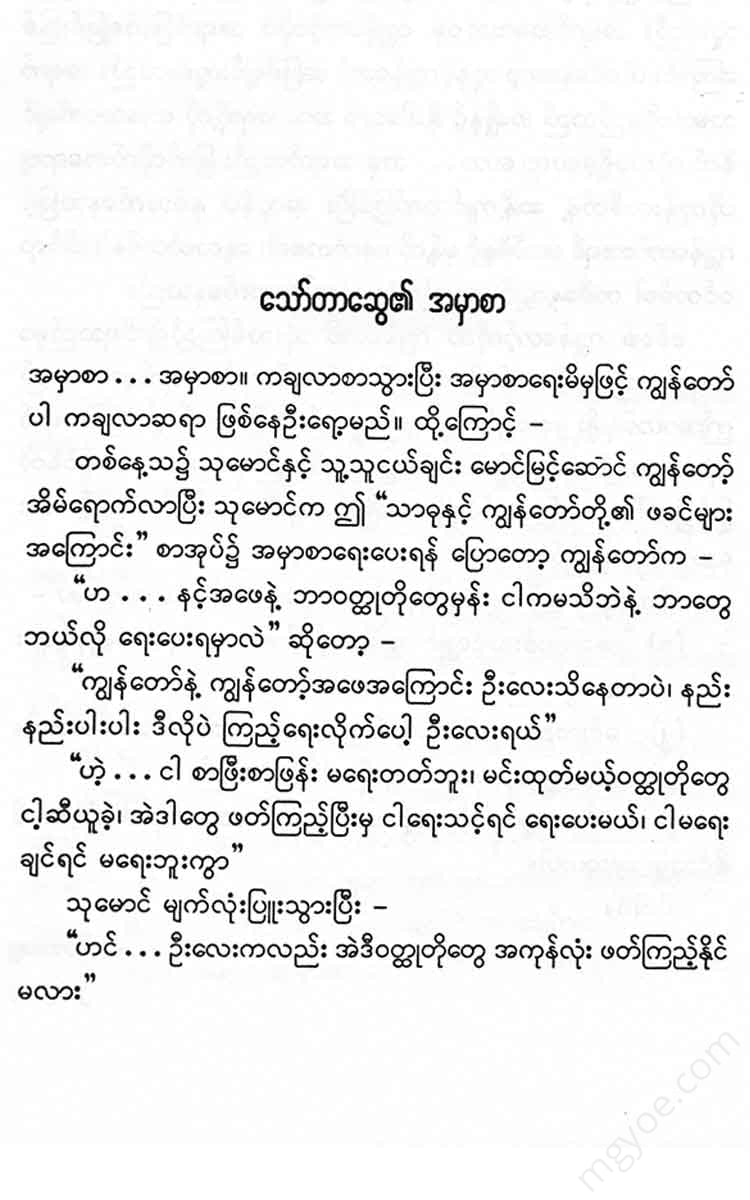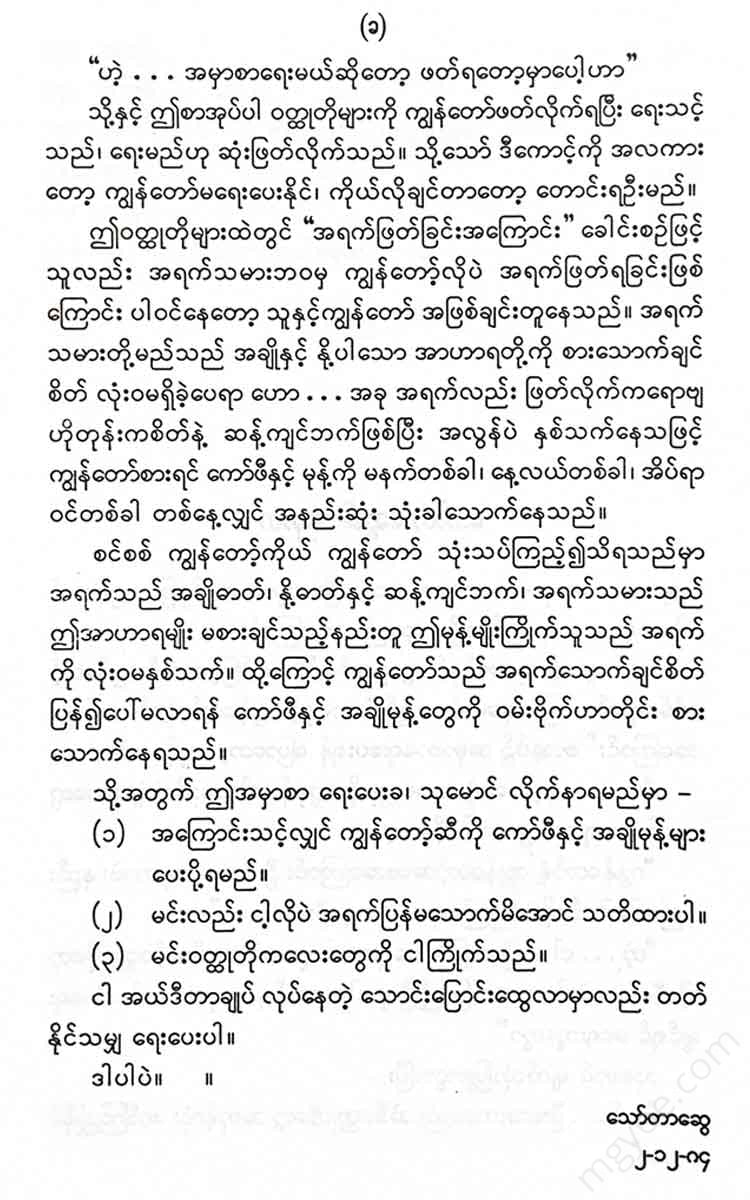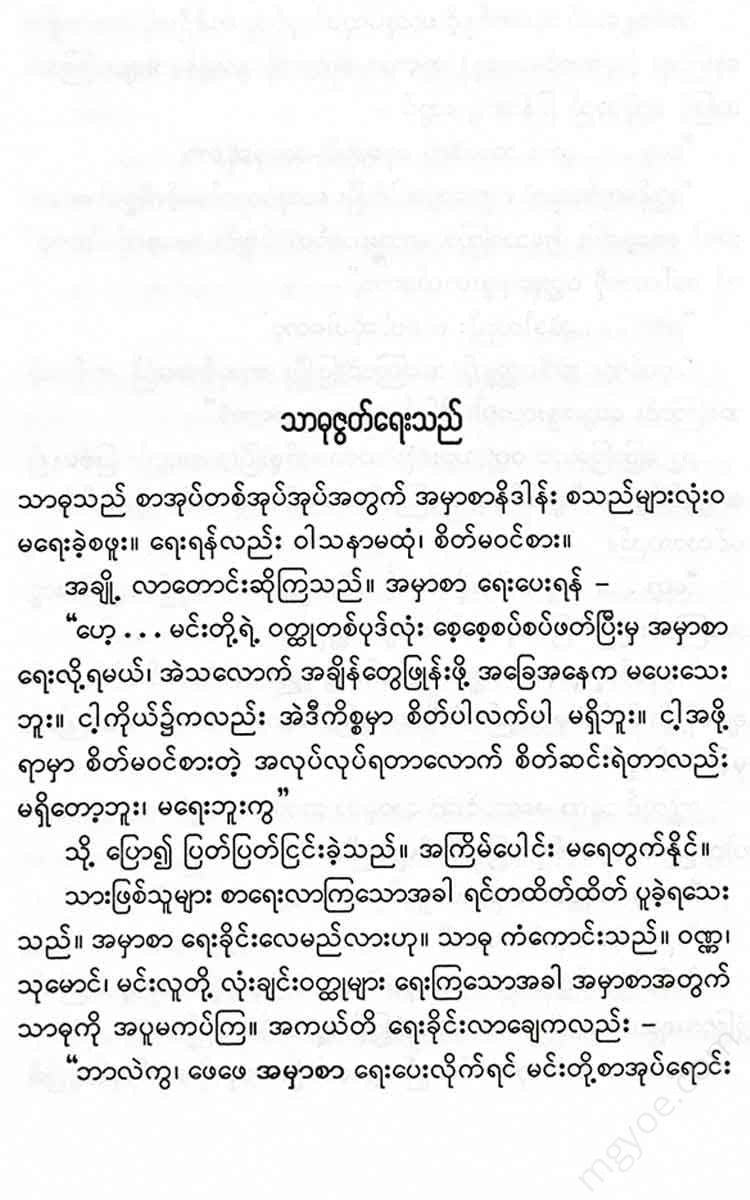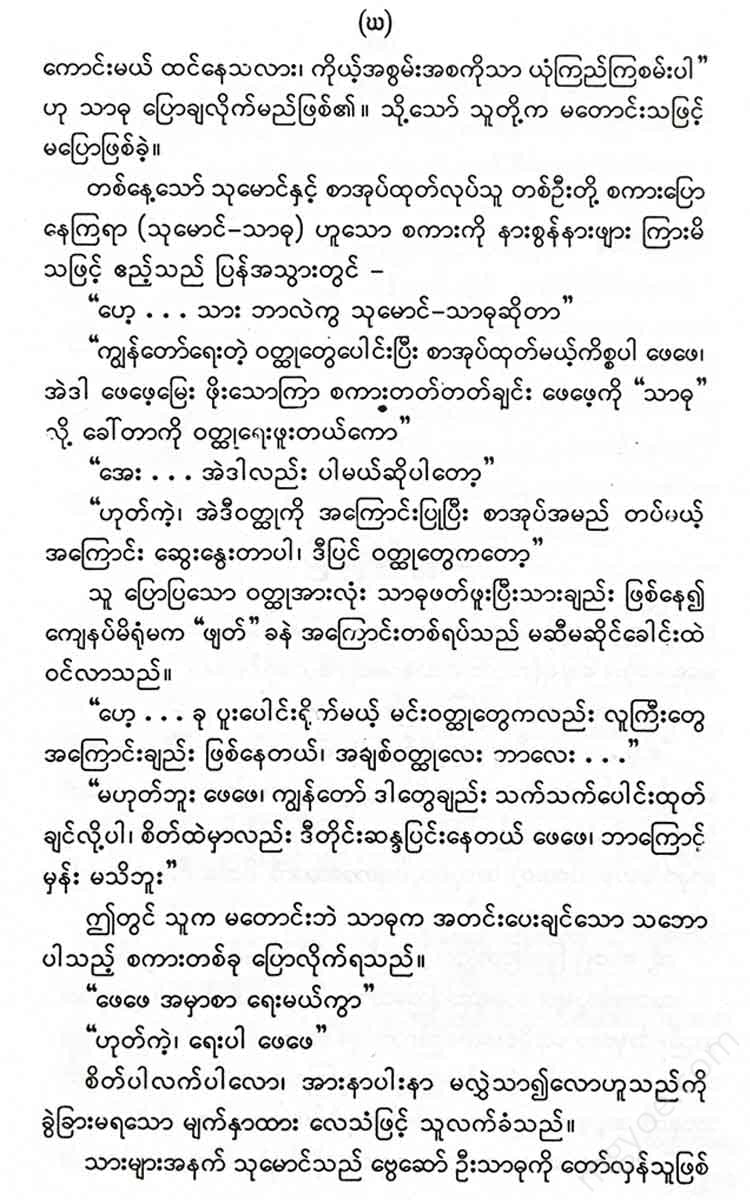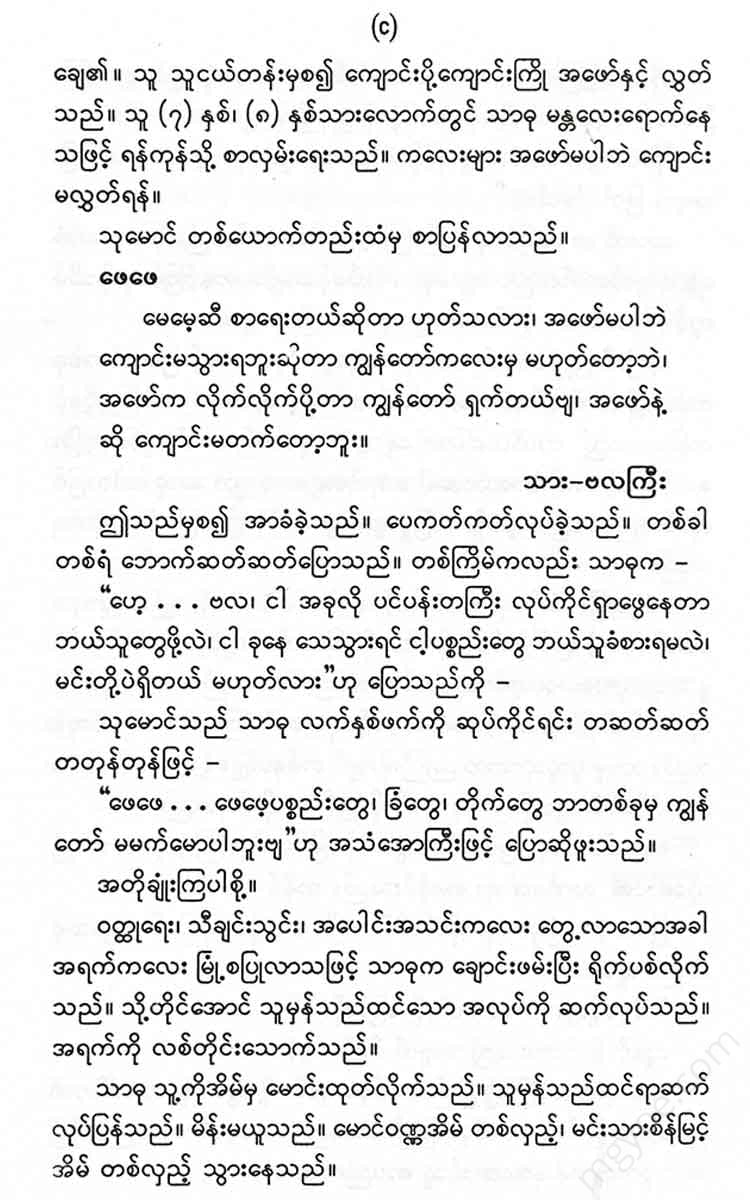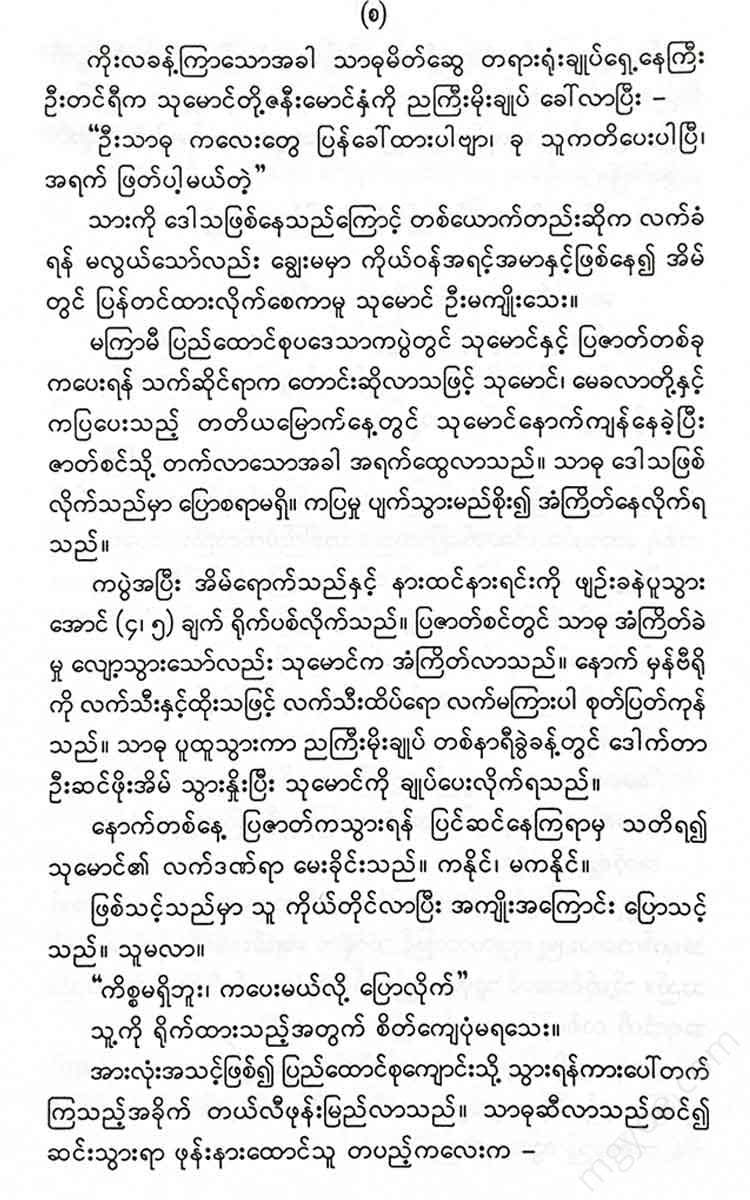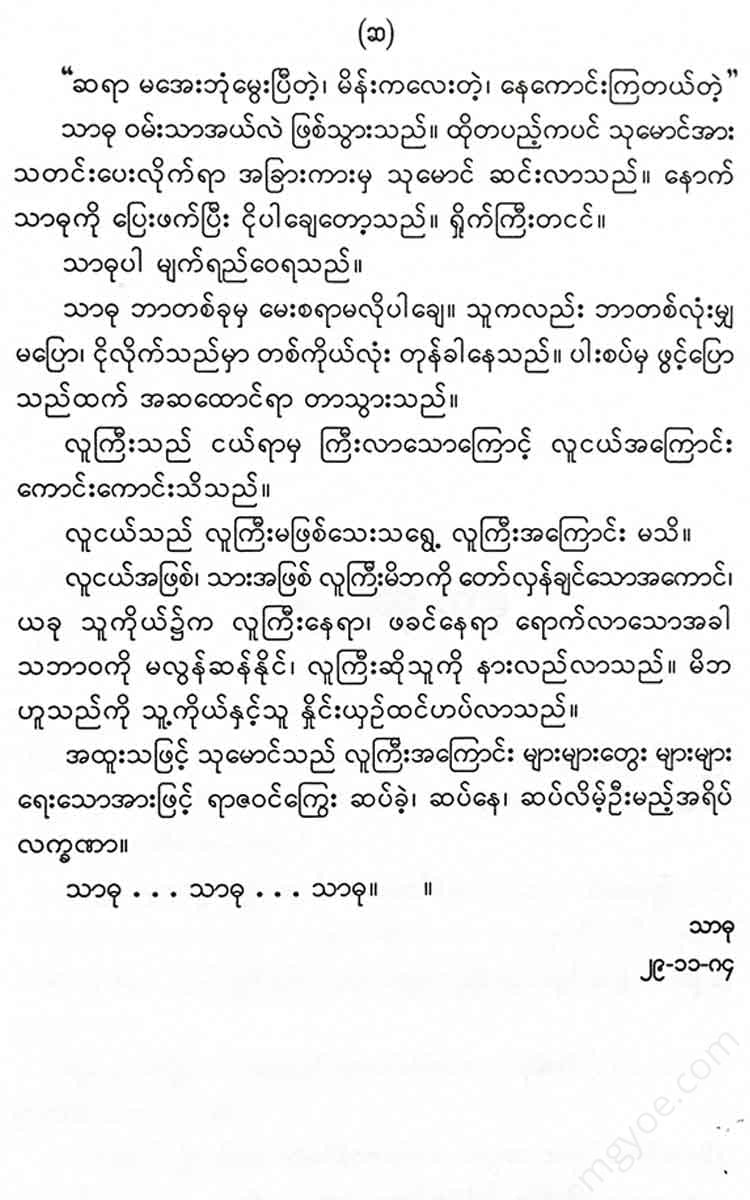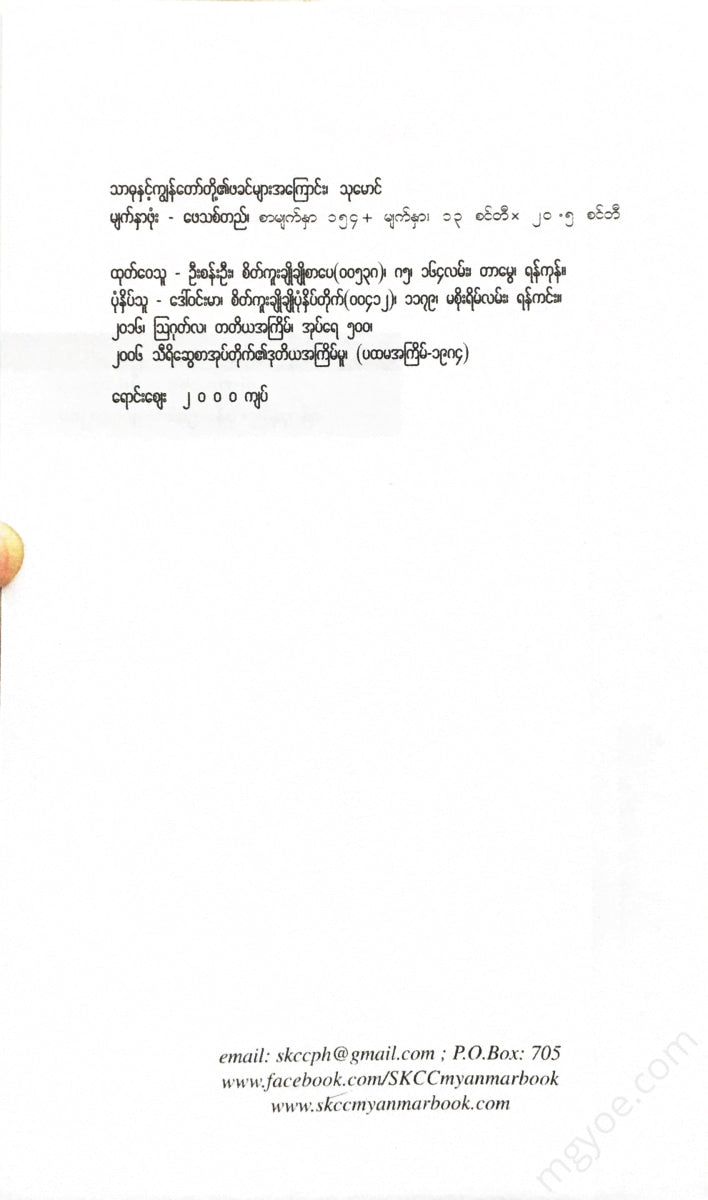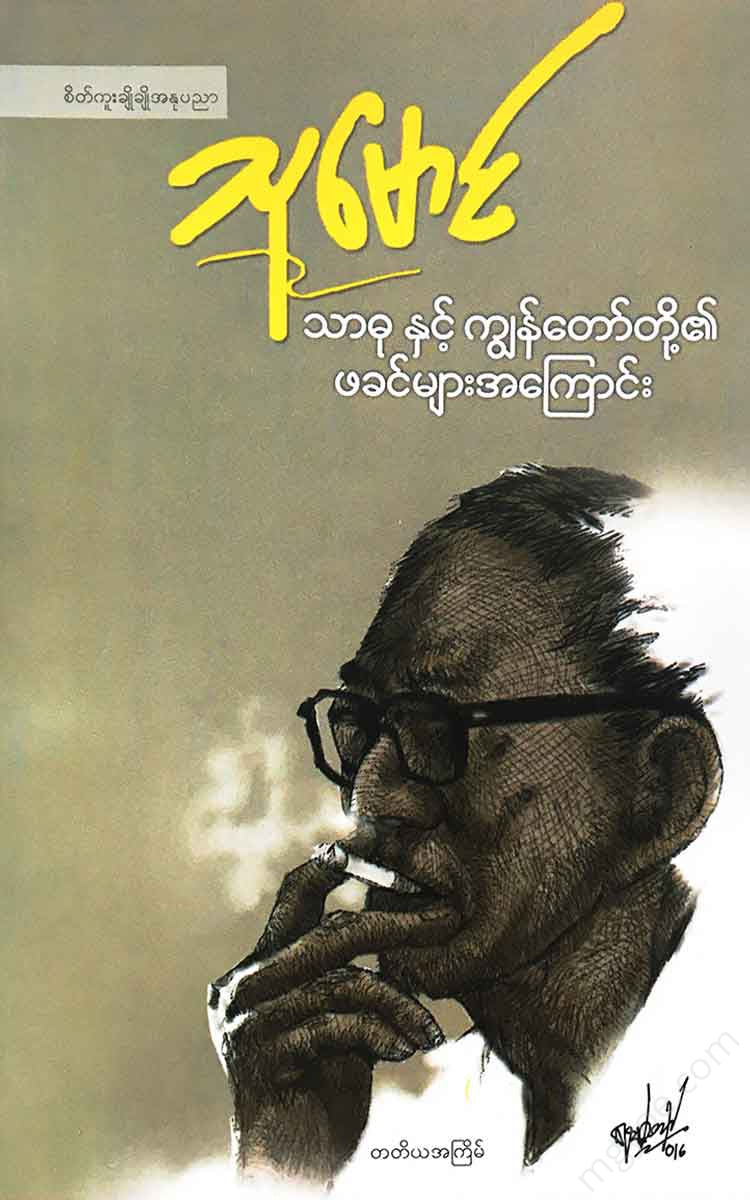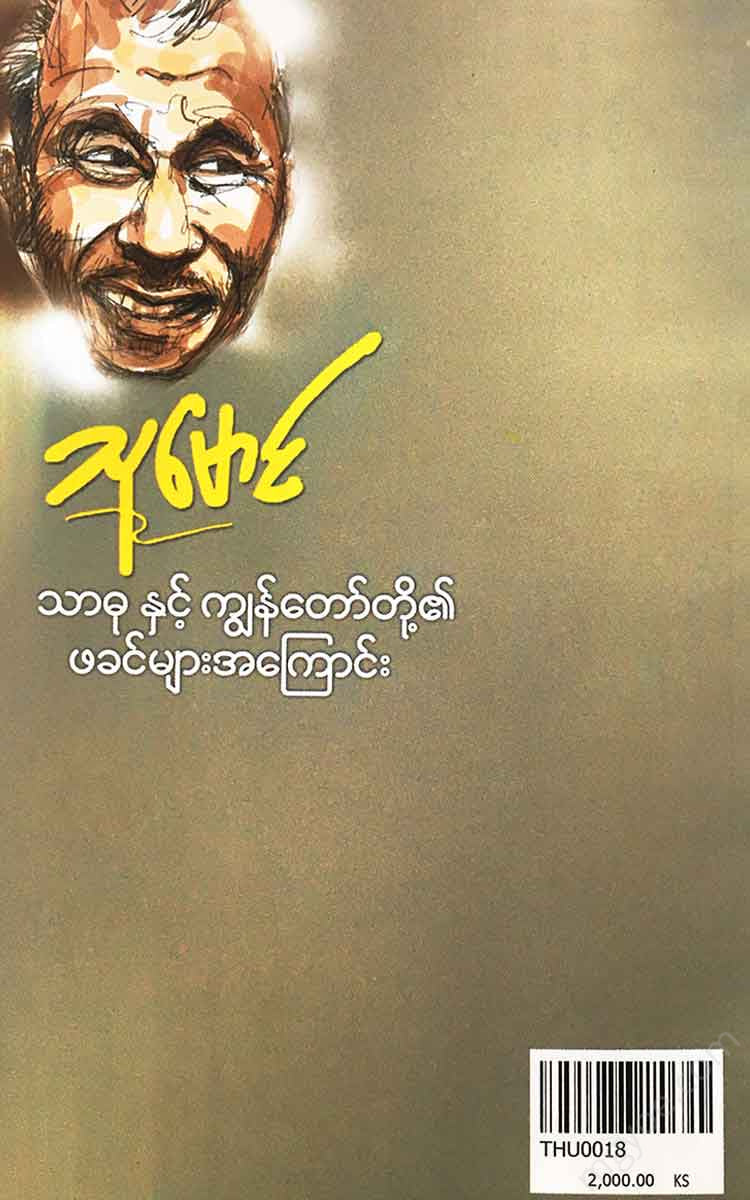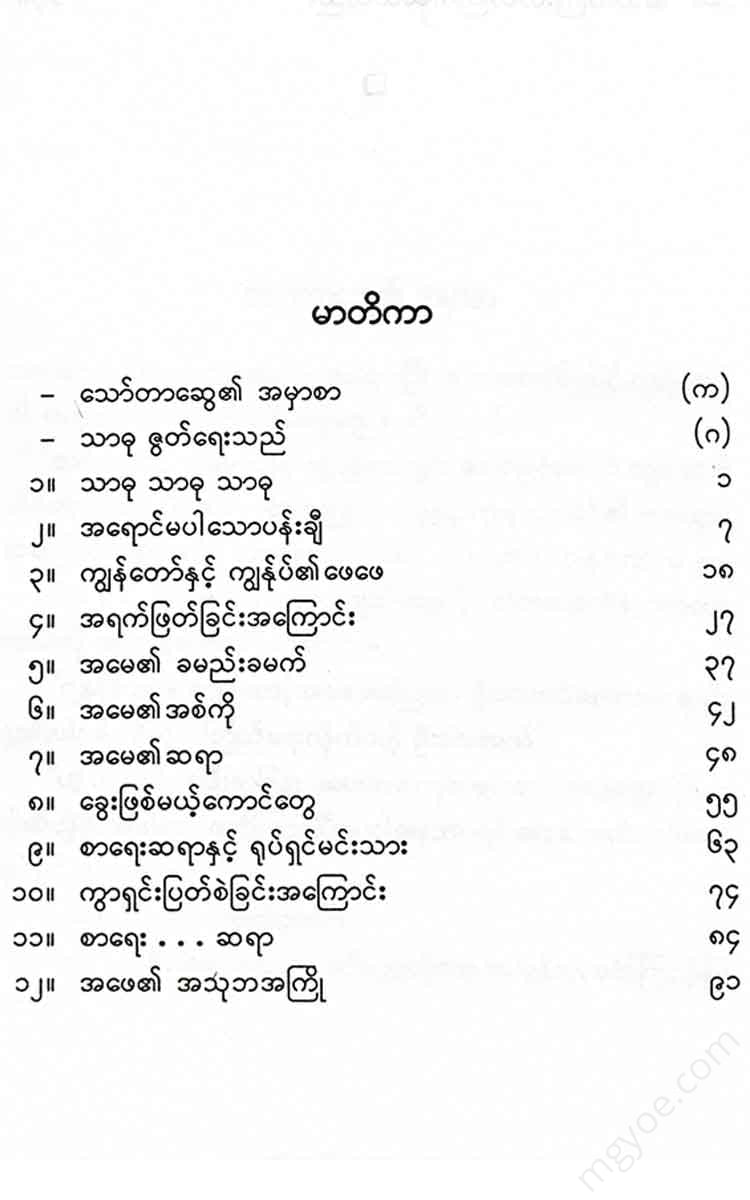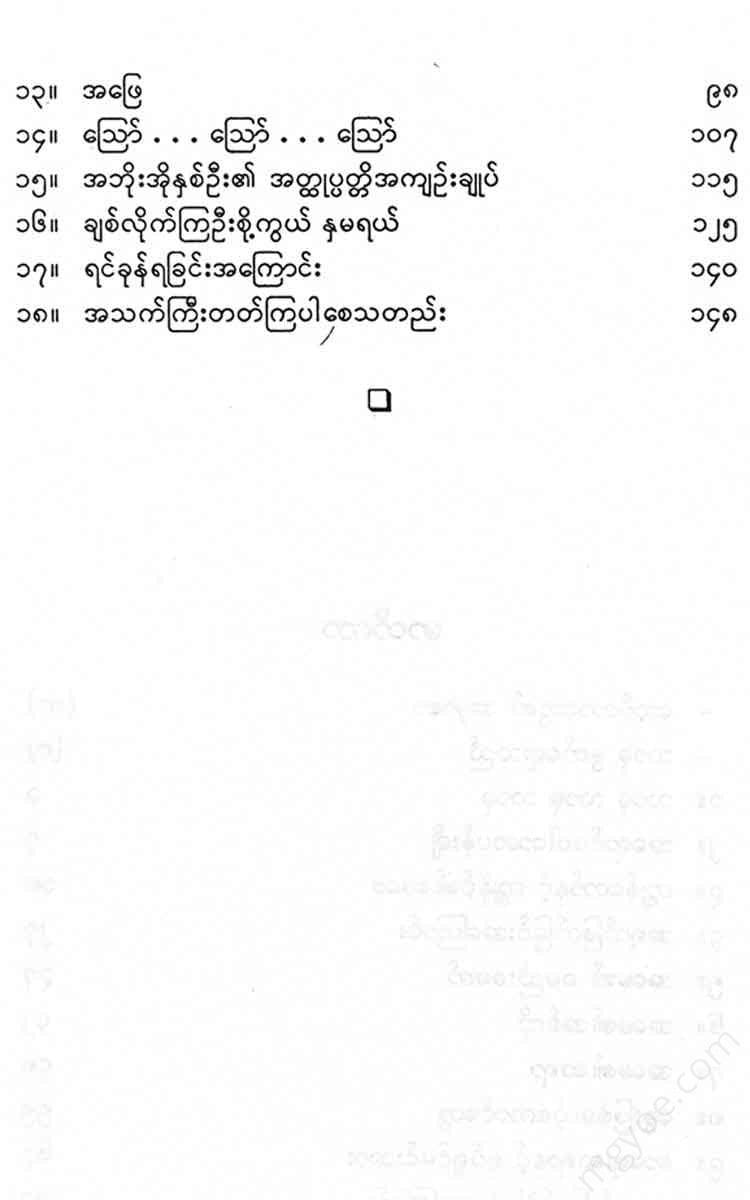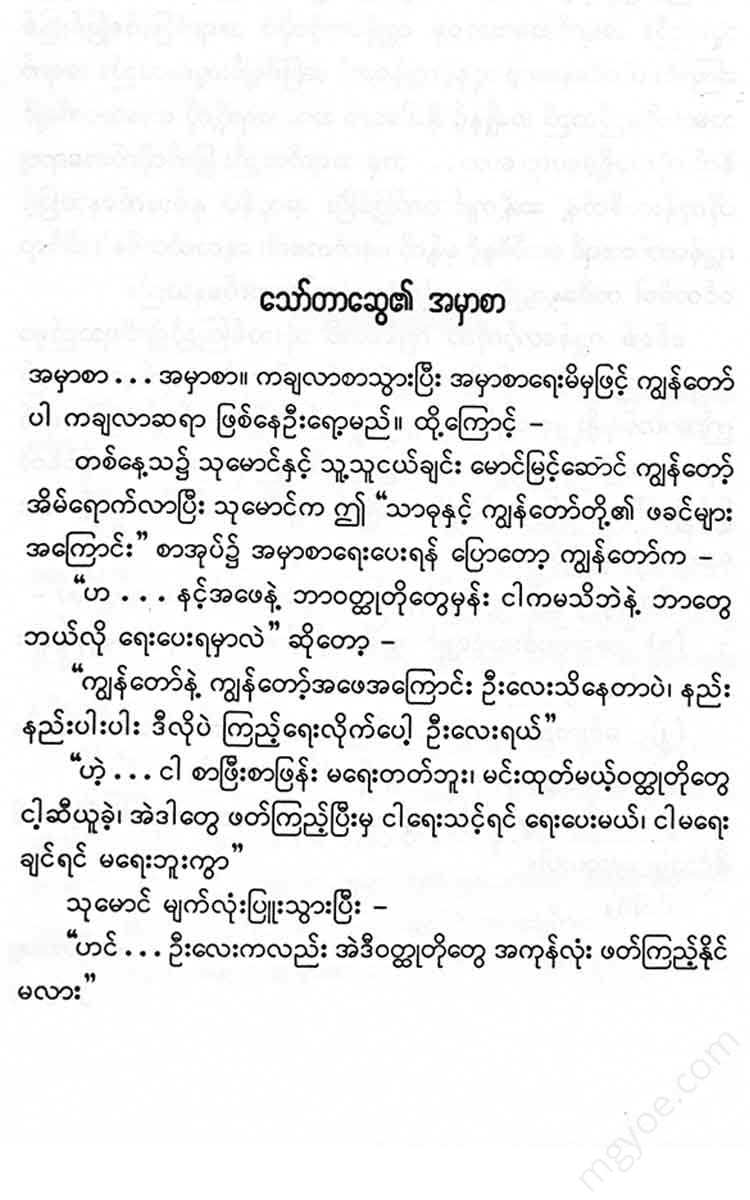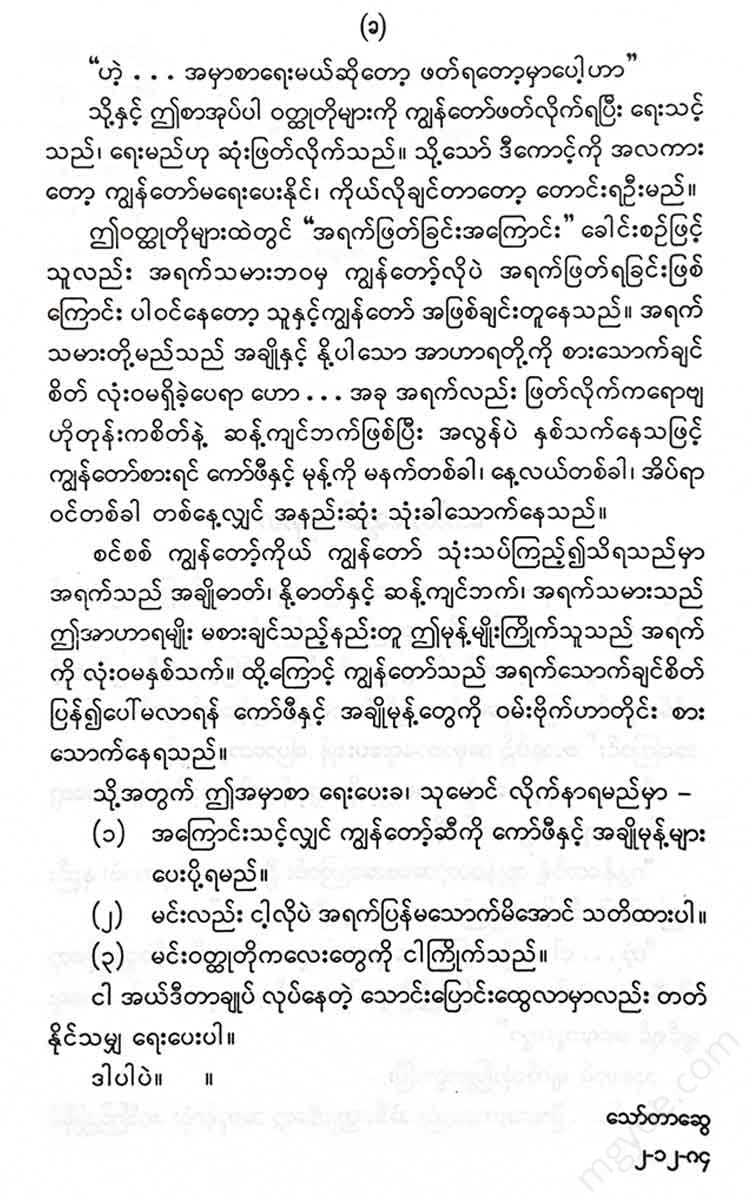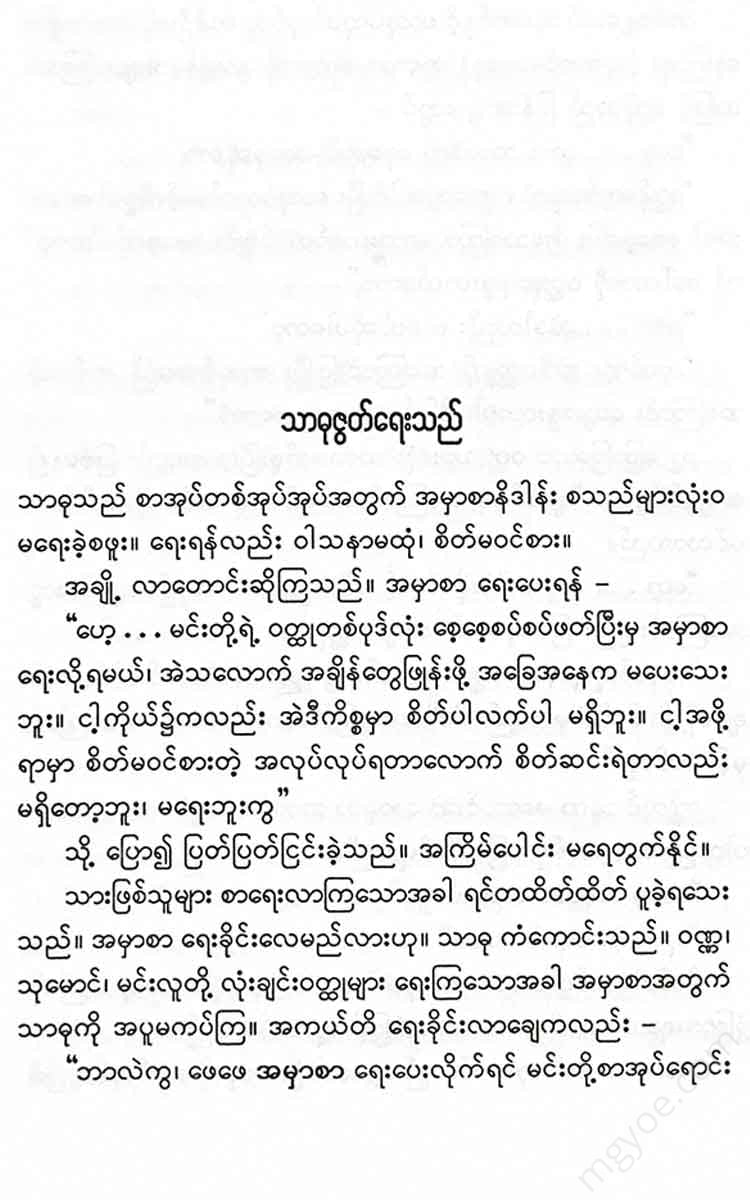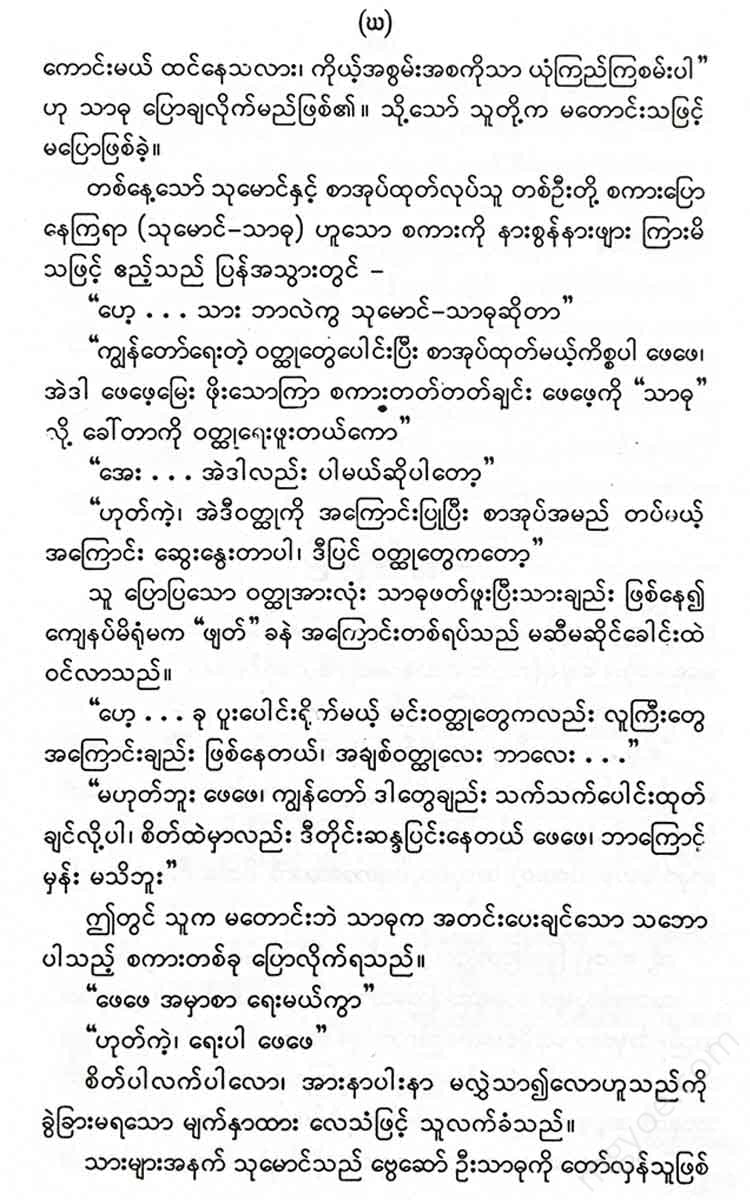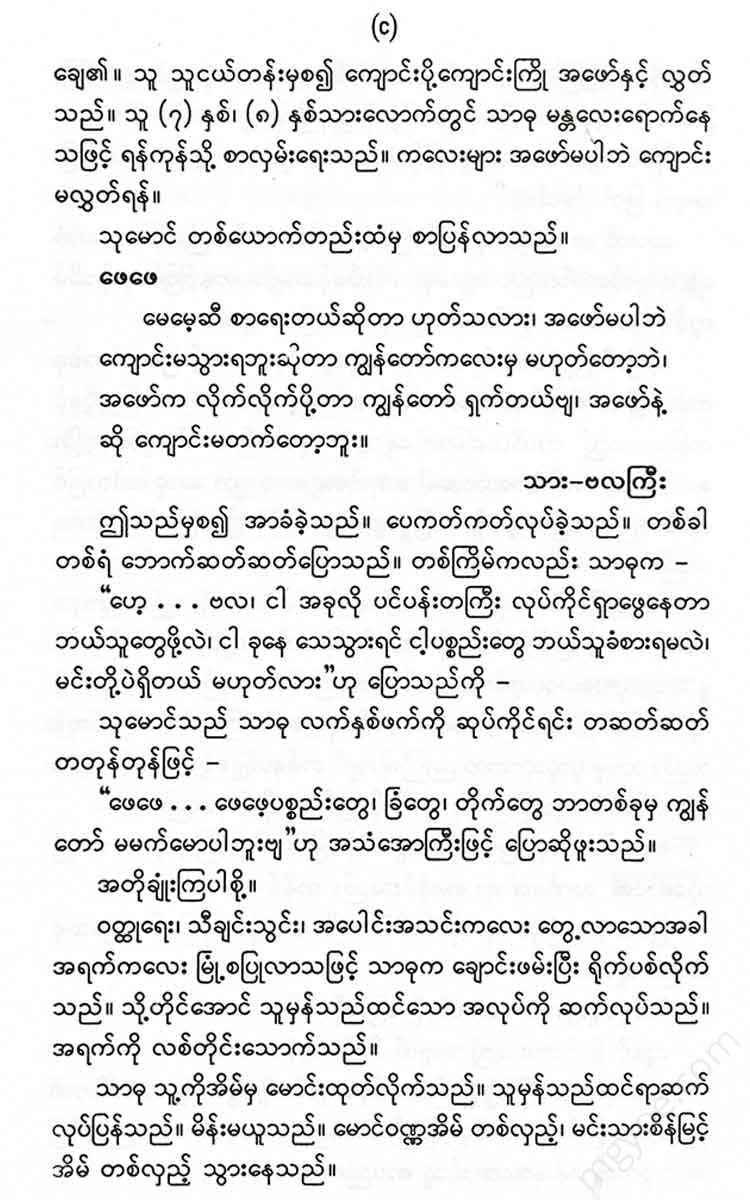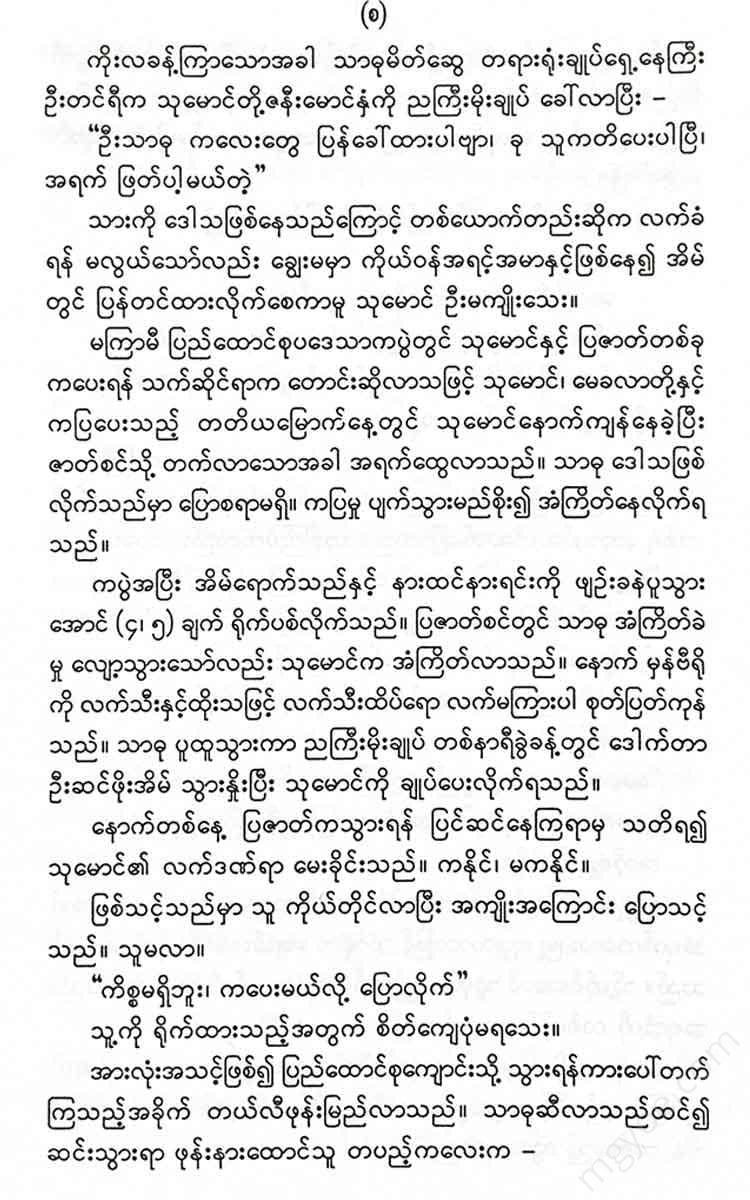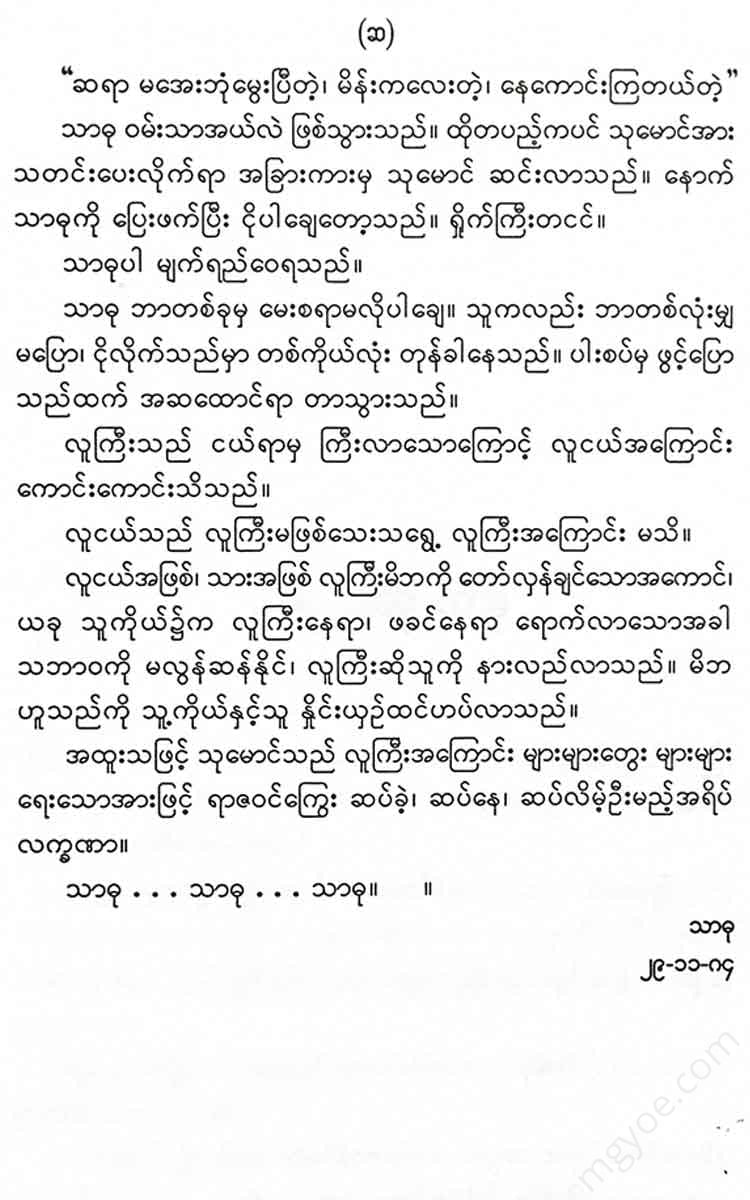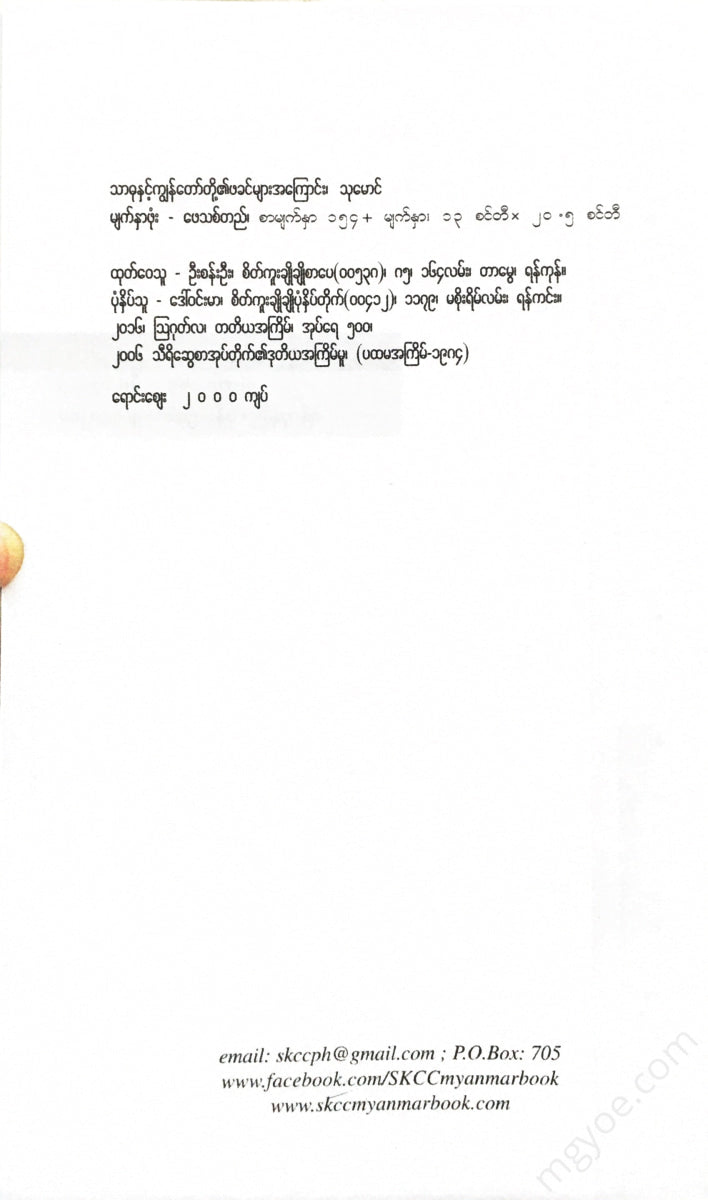စိတ်ကူးချိုချိုစာပေ
Thu Maung - About Sadhu and our fathers
Thu Maung - About Sadhu and our fathers
Couldn't load pickup availability
In Pali, "sadhu" means "good luck".
“Each day, adorn these eight symbols, consisting of the letters su-si-pu-ba-vai-li-si-dha, in the form of a flower.”
I have read it in an ancient text. Some scholars also say that from there, the first letter (सु) and the last letter (धा) are taken and translated as Sudha Sadhu.
Whatever the case, the sadhu is certainly a good omen.
All Buddhists will already know that in matters of sharing, whether in matters of happiness or misfortune, the threefold chanting of the mantra "Sadhu... Sadhu... Sadhu" is always performed.
As someone who is active in Buddhism (not in the sense of prayer, but in the teachings of the Buddha), I have been interested in the term "sadhu" for a long time.
However, what I want to say now is not about the example. This is because I am not an expert in Pali.
Let me be an expert in Pali. I must admit that this matter is not included in the text I want to talk about. Therefore, I admit that I am not talking about that Pali Sadhu.
Okay, so there is reason to ask, what is the reason?
I know. You'll think, "Hey...hey...you're using your father's name, right?"
I am not a Westerner like American or English. As a Burmese, how can I address my adoptive parents as friends?
"Sadhguru."
If they say it all, I don't have the right to call even U Thadhu.
What is the use of calling? Nothing. Writers are not people with positions. They are people who give themselves titles. Well... it's not a title that you give yourself and support yourself. The public reader-literary teacher (without shadow) should also be determined. Let me tell you. What I want to say is that when addressing fellow writers, they can use the terms "Master" and "Teacher" according to their age and education, and they can even use their pen names directly, such as "Sadhu", "Thawtar Swe", etc. It is also natural.
Let's say. I would call the writer Maung Taung and the sergeant Maung Htoo teachers. Or as an audience, I would just call them by their pen names. U Sargeant... Just think about it.
Therefore, I believe that when communicating with other writers, the title "teacher" should be used, and the pen name should be used.
However -
If we treat a person as a human being without any regard for the writer, then according to Burmese cultural tradition, we can call them "U-Daw-Ko-Ma" and so on, down to the last "Ta-Kong".
Now, what I want to talk about is why my father was not called "Sadhu".
Why, that's why, but it's an important why.
Why -
Because my father is 'father'.
I don't forget my words. I take the words of others seriously.
I already said it at the beginning. How can I call my foster father a friend? Okay, can I call him teacher? That's a big deal. Let's call him a monk, he's on the same level.
That's why I always made it clear that I don't have the right to call my father "Sadhu".
I have no right to call my father anything other than "father."
So what kind of examples do you think they will talk about?
( 2)
Writer Maung Shwe Sung once wrote about Sayar U Nya Na in a movie magazine. He is a writer, director, and screenwriter. I have heard that he is intelligent and kind-hearted, but also has a lot of eccentric ideas.
One day, Maung Shwe Sung went to the teacher to ask for a manuscript for the movie glasses magazine his father owned.
When he arrived there, he sat down next to the teacher as usual and respectfully requested permission. “Father, I have come to get the manuscript,” he said. The teacher said, “Can I call you father?” and scolded Maung Shwe Sung.
At that time, Maung Shwe Sung was only fourteen or fifteen years old. The teacher was old enough to call him father. Therefore, because of the teacher's words, Maung Shwe Sung did not stay in his original place but went with his head bowed. At first, he did not understand. Later ...
"Hey... if you want the manuscript, you have to trade."
Maung Shwe Sung thought to himself that he had understood. He took out the manuscript he had brought in his bag. Then it got worse. The teacher scolded him.
"Hey... young man, this is not the exchange I want. Money is not the deciding factor everywhere. Do you want a manuscript from me? Hey... you have to give me what I want."
"You"
"The only compromise I want is for you to call me, uh... intellectual, then I'll have the manuscript."
After discussing the matter with great fear, Maung Shwe Sung finally called the teacher, "Hey...intellectual," with his eyes closed.
Then, the master suddenly smiled brightly, his originally sullen face changing into a smile -
“Hey... Teacher, Teacher U Nana, I’m tired of being called ‘Baba’. Sometimes I still want to be called like that.”
He said and issued a decree.
The nature of adults is the same.
( 3)
The writer Min Lu is my younger brother.
Once upon a time, a novel, “Panswetaw Yawkalay,” was published, in which Saya Aung Pyae and I each wrote one verse.
In that novel couple, Aung Pyae and I agreed.
They agreed, "Let's ask someone younger and more respected than us to write the order."
So I asked the gentleman to write a letter. At first he refused. Then I wrote a letter to my brother and teacher with great respect. In that letter, the gentleman criticized me. He was right. A writer should listen carefully not only to the critic but also to the reader.
In fact, I have to admit that the points he criticized were points that I myself had not noticed.
Yes, that's right. The one who looks on from the sidelines can see more than the one who punches the tiger.
He said.
When I write novels, I write in a way that is as if I were whispering.
But in the end, it's amazing how that jump can cover up the jumps.
Life and honor, young and old, are not important. Understanding what he said, I will now end my ramblings. My story has begun.
( 4)
My son, Maung Sok, is now one year and five months old.
My son started talking at one year and two months. The first word he uttered was his grandfather's name. When my father (my son's grandfather) heard this news, he was so happy that he laughed until his teeth were showing. There is a Burmese proverb that says, "A son loves his grandson."
Oh... Sadhu... Sadhu... Sadhu.... .. ..
Shumawa, August, 1983
